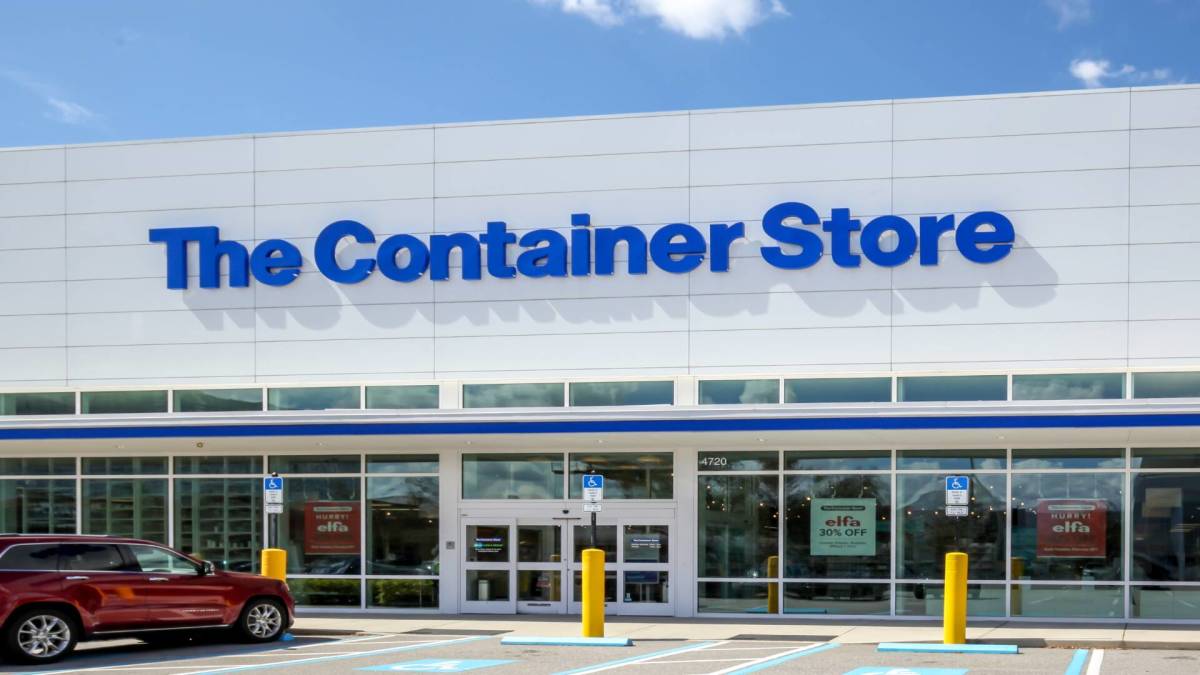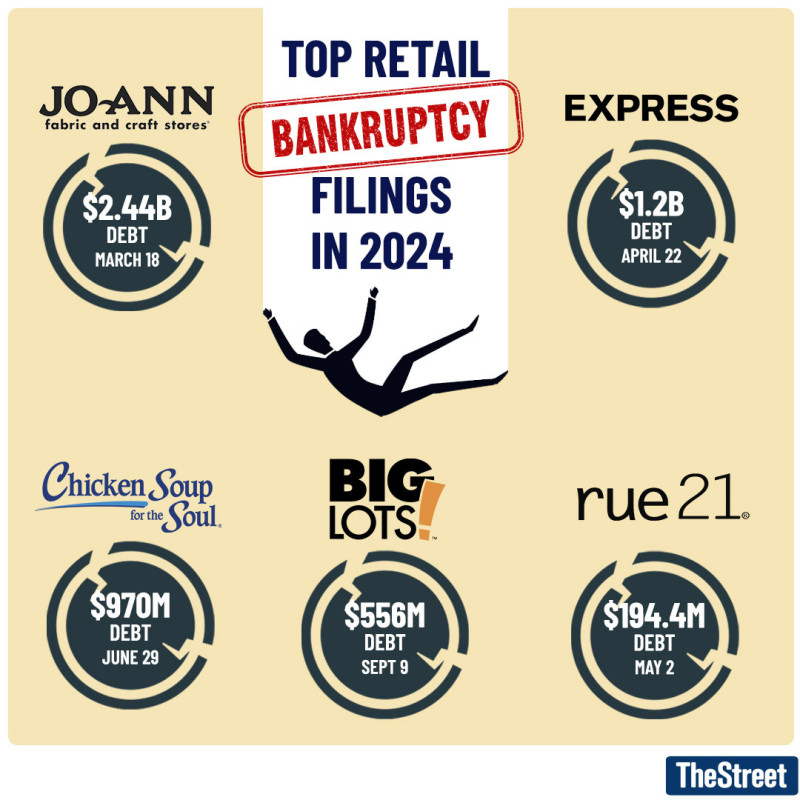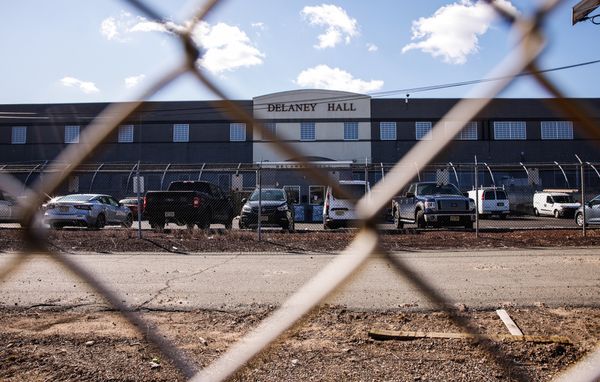
The home goods retail sector has faced significant distress over the last two years with several retailers filing for bankruptcy and some eliminating brick-and-mortar sales.
Discount home goods retailer Big Lots is the most prominent chain to file for bankruptcy in 2024 as it filed its petition on Sept. 9 with plans to close 550 of its 1,400 stores and sell its assets to private equity firm Nexus Capital Management for a $760 million bid, which included $2.5 million in cash, debt payoff, and assumed liabilities.
💸💰 Don't miss the move: Subscribe to TheStreet's free daily newsletter 💰💸
Tuesday Morning and Bed Bath & Beyond were a couple of other home goods retailers that filed for Chapter 11 bankruptcy in 2023 and shut down all of their locations.
Related: Another huge retail chain prepares to file for bankruptcy
Tuesday Morning continued as an online store. Bed Bath & Beyond also continued as an e-commerce retailer at Bedbathandbeyond.com, but this year sought to return to brick-and-mortar locations through agreements with Kirkland and The Container Store.
Beyond, which is Bed Bath & Beyond's parent, reached a $25 million investment agreement with Kirkland to open five small-format Bed Bath & Beyond stores where Kirkland will be the exclusive operator and licensee.
Another agreement between Beyond and The Container Store has run into problems.
The Container Store (TCS) has been getting nothing but bad news since November, when Beyond Inc. revealed in a statement on Nov. 20 that it had concerns about a proposed $40 million investment in the retail chain after the home goods retailer had not been able to secure additional financing acceptable to Beyond.
Midvale, Utah-based Beyond (BYON), which owns online retailers Overstock, Bed Bath & Beyond, Baby & Beyond, and Zulily, on Oct. 15, 2024, reached a $40 million securities purchase agreement with The Container Store Group Inc. that required the home goods retailer to secure new financing on terms commercially acceptable to Beyond as a condition to closing.
Under the agreement, Beyond has the right to determine in its sole discretion the adequacy of The Container Store's financing arrangements.
Related: Embattled oil company files for Chapter 11 bankruptcy
Beyond had proposed the investment in The Container Store as part of a plan to sell co-branded Bed Bath & Beyond products in the home goods retailer's brick-and-mortar locations. But those plans might be fading away.

Shutterstock
The Container Store's investment deal is at risk
"Based on the financing proposal presented to date, Beyond has concerns regarding The Container Store’s ability to reach agreement with lenders on terms that would satisfy the financing requirements under the Purchase Agreement," Beyond said in a statement.
More bankruptcy stories:
- Another popular pizza chain files for Chapter 11 bankruptcy
- Popular vodka brand files for Chapter 11 bankruptcy
- Auto parts retailer dumps hundreds of stores, no bankruptcy yet
"When we signed the Purchase Agreement, we were optimistic that the Container Store would be able to secure adequate financing to support the business going forward," Marcus Lemonis, executive chairman of Beyond said in the statement.
"While we continue to believe in The Container Store’s brand and business fundamentals, the proposed financing terms we have reviewed to date fall short of what we believe is necessary to complete the transaction. As careful stewards of our shareholders' capital, we must remain steadfast in ensuring that the terms of any financing package work for both The Container Store and Beyond," Lemonis said.

TheStreet
Beyond will continue to evaluate any financing proposals provided by The Container Store, the statement said, but if the home goods retailer cannot obtain commercially acceptable financing under the purchase agreement by Jan. 31, 2025, either party may terminate the purchase agreement.
The situation worsened for The Container Store on Dec. 9 when the New York Stock Exchange delisted and immediately suspended the trading of the retailer's common stock, according to an NYSE statement.
NYSE delisted The Container Store
NYSE delisted The Container Store as the company had fallen below the stock exchange's continued listing standard requiring listed companies to maintain an average global market capitalization of at least $15 million over a consecutive 30-day period.
The news gets even worse as The Container Store is getting ready to file for Chapter 11 bankruptcy and hand control of the company to its secured lenders, people with knowledge of the plans told Bloomberg.
The Container Store had been seeking new financing in November, but negotiations have evolved into restructuring discussions, the sources said.
The Container Store, which operates 103 stores, reported net sales in the second quarter ending Sept. 28, 2024, of $196.6 million, down 10.5%. The company currently owes over $229 million in long-term debt.
Related: The 10 best investing books (according to stock market pros)







